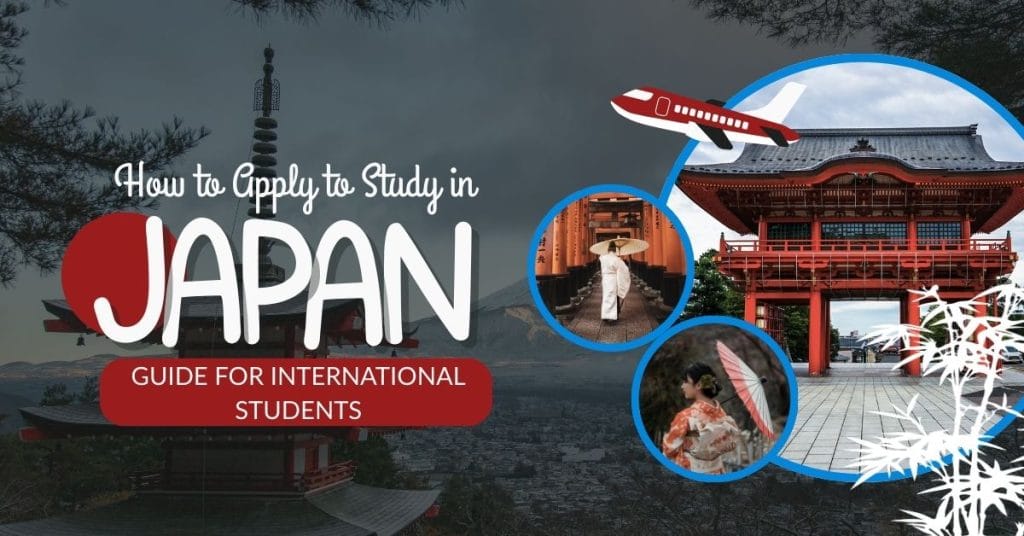Studying in Japan is an exciting opportunity—but the path to admission into a Japanese university can be complex and overwhelming for international students. At DEOW Japan we help you navigate that path with confidence.
1. Understanding the Japanese University System
Japan’s higher-education system may differ significantly from what you’re used to. For example:
- A typical bachelor’s degree takes 4 years (six years for medicine, dentistry, veterinary, etc.).
- Applicants often choose whether to study in Japanese or in English—and this choice changes everything from eligibility and examinations to daily student life.
- The academic year in Japan typically starts in April and ends in March.
2. What the Application Process Looks Like
For international students aiming to enroll in a Japanese university, here’s a typical application flow and what you’ll need to prepare:
- Eligibility / Qualifications: Many universities require you to have completed the equivalent of a Japanese high school education (usually 12 years) or hold internationally recognised curricula (IB, A-Levels, etc.).
- Required Documents: You’ll usually need to submit:
- Application form (designated by the university)
- High school diploma and transcript(s)
- A letter of recommendation from your high school teacher or principal
- Proof of Japanese and/or English proficiency, depending on your programme.
- Entrance Examinations or Screenings: Many universities conduct entrance exams, document screenings, interviews, or special international student evaluations.
- Application Timing & Deadlines: Deadlines vary greatly depending on university, programme (Japanese-taught vs English-taught), intake month (April, September) and the applicant’s background.
- Visa & Immigration Procedures: Once accepted, you’ll need to apply for a Certificate of Eligibility (CoE) and then a student visa in most cases. For example, Nagoya University outlines specific requirements (passport copy, bank statements, etc) for non-Japanese applicants.
3. Why It Can Feel Overwhelming
There are several reasons international applicants often feel the process is daunting:
- Language barriers: If your programme is Japanese-taught, you will need a high level of Japanese proficiency. Even English-taught programmes often expect some Japanese or at least help you integrate with Japanese-language support.
- Different educational systems: The eligibility criteria (for example, whether your high school curriculum aligns with Japanese standards) can be confusing.
- Multiple application tracks: Universities may offer different tracks for domestic students, for international students, for students whose high school education was outside Japan, etc. Choosing the right one is critical.
- Programme selection and fit: Deciding whether to study in Japanese or English, choosing the right major, campus, and environment—all while often still living abroad.
- Deadline pressures and documentation: Misfiling a transcript, missing a test date, under-preparing for an interview—any of these can derail an application.
- Post-acceptance logistics: Once you get accepted, you still need to manage housing, visas, orientation, budgeting, culture shock, possibly regulations on part-time jobs, etc.
4. English-Taught Programmes: A Growing Opportunity
If you’re not yet fluent in Japanese, or you prefer to study in English, there are more and more universities in Japan offering full or partial programmes in English. Here are just a few examples:
- The University of Tokyo offers its PEAK (Programs in English at Komaba) Bachelor of Arts programme in English, e.g., “Japan in East Asia” or “Environmental Sciences”. No prior Japanese is required.
- Nagoya University’s G30 International Programs are full-degree programmes taught entirely in English.
- Kyoto University offers “Kyoto iUP” (International Undergraduate Programme) which is English + Japanese, and you can apply without Japanese language proficiency.
- Waseda University offers undergraduate schools with English-based degree programmes where Japanese language ability is not required.
- These programmes open the door for international students who wish to study in Japan but may not yet speak Japanese fluently. That said, learning Japanese remains a huge asset for daily life, networking, internship or job prospects.
5. Why Use an Agency Like DEOW Japan
Here’s why partnering with DEOW Japan can make the difference between a stressful process and a smooth, successful admission:
- Expert guidance & tailored University application support: We help you understand the eligibility criteria for your background, choose the application track that best fits you, and help you select universities/programmes (including English-taught ones) that match your goals.
- Documentation management: We assist in compiling transcripts, writing recommendation letters or personal statements, arranging translations if needed, and ensuring your submissions meet the university requirements.
- Timeline & deadline tracking: We keep you on schedule—so you don’t miss crucial dates for applications, exams, scholarships, visa steps, etc.
- Language & test preparation: Whether it’s Japanese language proficiency tests (e.g., JLPT), English tests (TOEFL, IELTS), or university entrance exams/interviews, we support your preparation.
- University programme matching: With knowledge of the landscape—including English-taught programmes—DEOW Japan can help you match your aspirations with the right institution (for example, if you prefer English instruction, we can point you to universities like UTokyo, Nagoya U, Waseda, Kyoto U, etc).
- Post-acceptance support: Admission is just the first step. We also help with visa application guidance, housing counselling, orientation, and adapting to life in Japan—so you start your student life confidently, not stressed.
- Reducing stress & risk: The fewer unknowns you have, the more you can focus on your studies and your future, rather than getting bogged down in administrative hurdles.
6. Key Takeaway
Entering a university in Japan is absolutely possible—and increasingly accessible thanks to English-taught programmes. But the process involves many moving parts: eligibility rules, different application tracks, language requirements, deadlines, documentation, and life transition logistics. Having an expert partner like DEOW Japan significantly increases your chances of success and helps you start your journey to Japan on the strongest footing.
Ready to start your journey to a Japanese university?
Let our experienced counselors guide you through every step—from choosing the right program to submitting a perfect application.
Fill out the form today and get personalized support for free.



